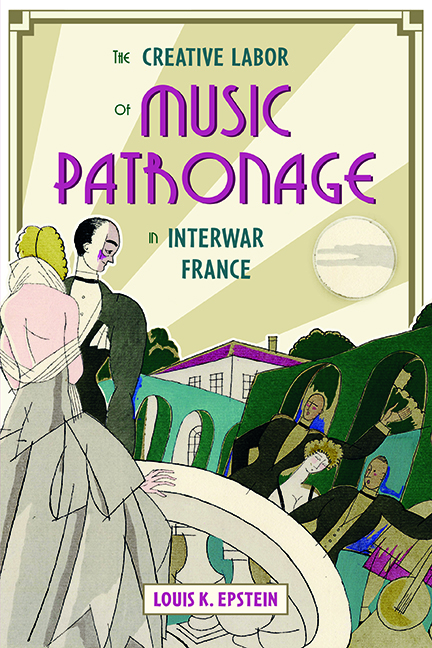Book contents
- Frontmatter
- Dedication
- Contents
- List of Tables
- List of Musical Examples
- Acknowledgments
- Abbreviations
- Introduction: Redefining Patronage
- 1 The Patronage Problem
- 2 Aristocratic Commissions
- 3 Entrepreneurial Patronage and Concert Dance
- 4 The Publisher as Patron
- 5 Jacques Rouché: The State’s Patron
- 6 Nationalizing Music Composition
- 7 Transatlantic Legacies
- Bibliography
- Index
- Music in Society and Culture
5 - Jacques Rouché: The State’s Patron
Published online by Cambridge University Press: 26 May 2022
- Frontmatter
- Dedication
- Contents
- List of Tables
- List of Musical Examples
- Acknowledgments
- Abbreviations
- Introduction: Redefining Patronage
- 1 The Patronage Problem
- 2 Aristocratic Commissions
- 3 Entrepreneurial Patronage and Concert Dance
- 4 The Publisher as Patron
- 5 Jacques Rouché: The State’s Patron
- 6 Nationalizing Music Composition
- 7 Transatlantic Legacies
- Bibliography
- Index
- Music in Society and Culture
Summary
On July 29, 1931, Jacques Rouché faced a low point in his illustrious career. Two years earlier, the Paris Opéra administrator had spotted an opportunity in the demise of the Ballets Russes: he would hire Serge Lifar, the last choreographer of the Russes, and commission modernist ballets to rival those presented by Diaghilev. One of Rouché's first ballet commissions went to Serge Prokofiev for what became Sur le Borysthène, and as part of negotiations for that commission Rouché had agreed to give the Paris premiere of Prokofiev's opera L’Amour des trois oranges alongside the premiere of the composer's new ballet. But when Rouché made suggestions for improving minor aspects of the opera, Prokofiev exploded: “The Director of an old-fashioned Theater reproaches the lack of modernism in the libretto of an avant-garde composer! Someone must be in error in this situation and – to make a logical deduction – it must be the Director.” Prokofiev's “old-fashioned” barb, which reinforced a critical trope concerning the Opéra's conservatism, came at a time when Rouché was struggling to renovate the Opéra's repertory in the face of deepening budget deficits. The Great Depression had just struck France. Attendance and subscriptions were down. Fewer visiting troupes were renting out the Opéra and Rouché's bottom line dipped precipitously. It is hardly surprising, then, that less than a year after his spat with Prokofiev, Rouché resigned as director of the Opéra. Yet the story does not end there.
When the French Ministry of Public Instruction and Fine Arts chose Jacques Rouché as director of the Paris Opéra in 1913, he seemed unusually well-positioned to succeed in the role. His résumé already boasted significant achievements in business and the arts. A graduate of the famous École Polytechnique, Rouché worked as chief of staff for several ministers early in his career before being named head of the general staff for the 1889 World's Fair – all before he was twenty-seven years old. His career took a major turn when in 1893 he married Berthe Piver, heiress of the L.T. Piver perfume company. Rouché became CEO of Piver, introducing synthetic perfumes and marketing innovations such as the perfumed card and fan.
- Type
- Chapter
- Information
- The Creative Labor of Music Patronage in Interwar France , pp. 134 - 153Publisher: Boydell & BrewerPrint publication year: 2022



